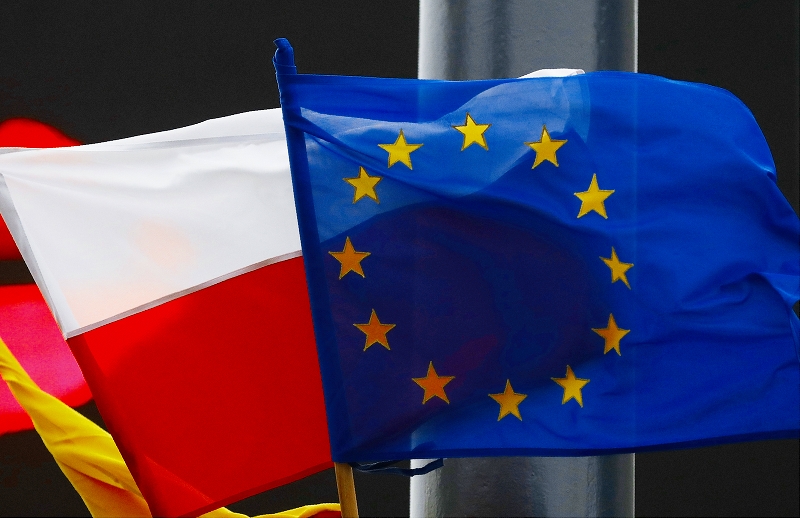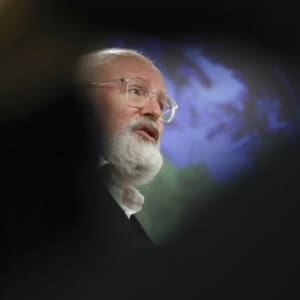Three former Polish PMs with post-communist backgrounds, now MEPs, urgently demanded that Ursula von der Leyen reveal details about her meeting with Mateusz Morawiecki. The politicians were worried that, according to unofficial sources, the meeting was held in a positive atmosphere, a compromise in many areas was possible, and matters were going in a favorable direction for Poland in general. Moreover, Von der Leyen reportedly emphasized that Poland was one of the countries which was making sure that money from EU funding was spent honestly and which did not permit corruption.
This aroused concern among three post-communist Polish PMs. Why?
Because attacking Poland is simply too profitable for some influential countries and groups. It is the condition for the livelihood of their careers or is seen as a tool for grabbing power. It is nevertheless surprising that one can so openly play in favor of Poland and Poles’ defeat even in the case of gigantic funds. That one can so openly support foreign pressure to cause a shift in power in Poland – as a Polish publicist and citizen, this makes me ashamed.
It is surprising that one can so openly play in favor of Poland and Poles’ defeat even in the case of gigantic funds.
It must be stated clearly that the Polish state, its systems and its elites are undergoing a fundamental test right now. Are we able to and do we want to defend our independence, sovereignty and democracy? How much do we really care about our constitution, which clearly outlines the framework of international cooperation and does not permit foreign supervision in areas of social and economic life? Will we allow EU bureaucracy to take over control and force ill-advised agreements in further areas which are not mentioned in EU treaties?
Maybe soon EU tribunals will demand the right to decide whether the results of Polish elections should be accepted by them – will we permit this as well?
The legislation on these matters is clear: there are already areas in which Poland gave up its competencies to EU institutions, and no one is questioning this. These include the single market, parts of agricultural policy and a joint budget. There are, however, areas which remain the sole competencies of nation states: education and the judiciary (including disciplinary judiciary of judges).
Yet Brussels is reaching for these areas and wants to supervise them, too. This is the crux of the issue: reaching for areas of which there is no mention in EU treaties.
It is hard to disagree with justice minister Zbigniew Ziobro when he called this “legal aggression” and “usurpation”.
It is clear that this conflict is arriving at a turning point. We’ve all heard about the CJEU ruling on the Polish Supreme Court Disciplinary Chamber. Interestingly, the same solutions in other states are compatible with EU law. No one is even asking them about this, because it is not an EU competency.
Mateusz Morawiecki commented that he will not permit Poland to be discriminated when it comes to very similar or identical legal procedures that were present in Germany or Spain.
The most important thing will be decided within the next days through a series of rulings made by CJEU on one side and the Polish Constitutional Tribunal on the other: is the Polish constitution the highest law in the country, or is EU law above it?
This will have an impact in those areas in which the EU does not have competencies, not in the ones in which it already has those competencies.
Influential German publicist Christoph von Marschall warned against the destructive consequences of some EU institutions’ attempts to forcefully expand their competencies. In an article titled “This is how Europe falls apart”, he questioned whether the EU was wise to take the judiciary conflict to the extreme. He warned that, instead, the EU was dividing Europe.
Von Marschall also recalled that the German Federal Constitutional Tribunal criticized the EU for overreaching in its ruling. Its former president Andreas Vosskuhle and many other European law experts had argued that EU law had an automatic priority over state laws.
I hope this is a voice of reason. A world in which officials or judges work without a democratic mandate will resemble a tyranny, more and more. Even if someone believes that such a tyranny is in their best interests, then they will sooner or later witness the severity of the price to be paid for losing our freedom. The fact that this time the process is being carried out under blue flags changes nothing.
Poles want to be part of the European Union – the one we initially agreed to.





